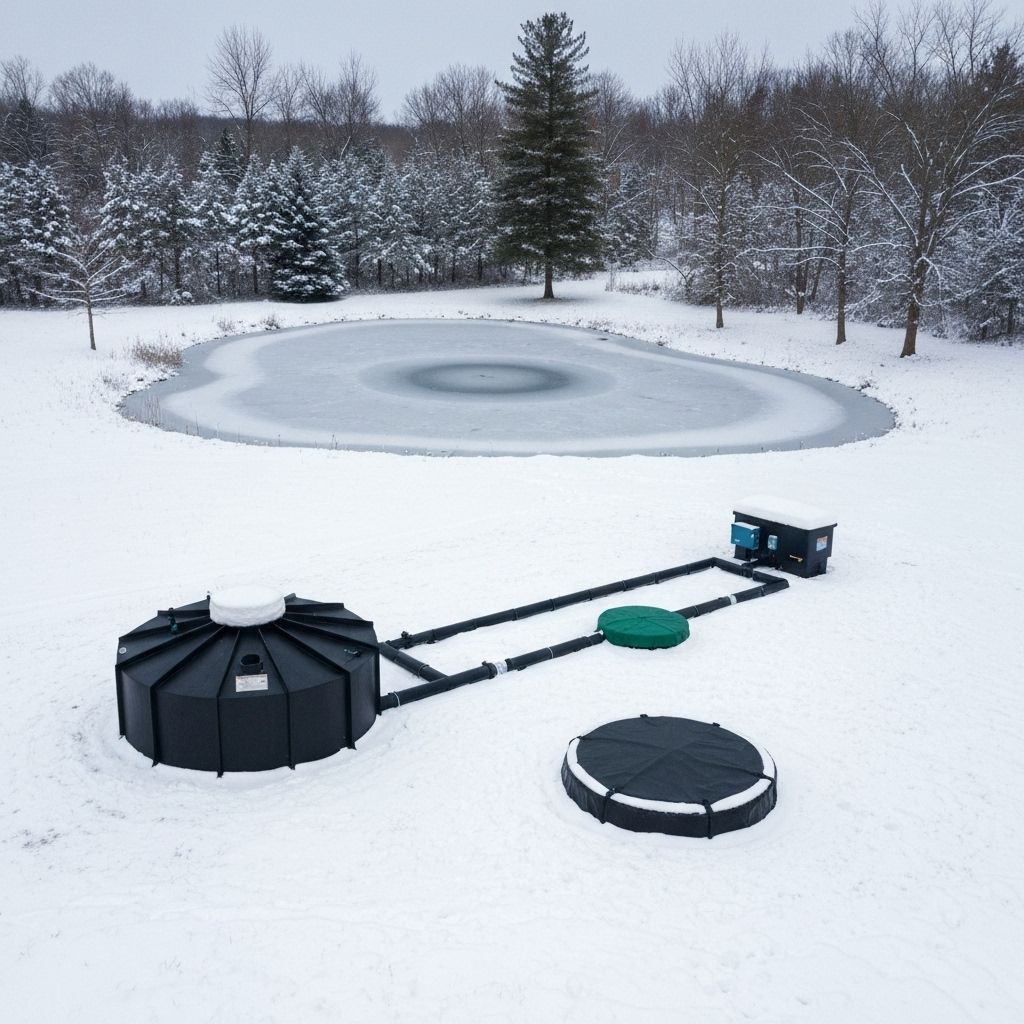Winter weather can pose unique challenges for septic systems. Cold temperatures, frozen ground, and snow cover can all impact system performance. Here's how to protect your septic system during the winter months.
Pre-Winter Preparation
Schedule a Pump-Out
If your tank is due for pumping, do it before winter arrives. A tank with excessive solids is more likely to freeze and can cause backups during cold weather.
Insulate Exposed Components
Insulate any above-ground components like pumps, pipes, or electrical connections. Use appropriate insulation materials designed for outdoor use.
Check and Repair
Address any known issues before winter. Cracked pipes or loose connections can become major problems when temperatures drop.
Preventing Freezing
Maintain Regular Water Usage
Consistent water flow helps prevent freezing. The warmth from regular wastewater flow keeps pipes and the tank from freezing solid.
Add Insulation
Cover your septic tank and distribution box areas with:
- Mulch or straw (8-12 inches deep)
- Leaves or compost
- Snow (natural insulation)
Avoid Compaction
Don't drive vehicles or heavy equipment over your septic system. Compacted snow and soil reduce insulation and can damage components.
What NOT to Do in Winter
Don't Use Additives
Antifreeze and other chemical additives can harm your septic system and contaminate groundwater. They're not effective and can cause more problems.
Don't Reduce Water Usage Drastically
While water conservation is generally good, drastically reducing water usage in winter can allow your system to freeze. Maintain normal usage patterns.
Don't Remove Snow Cover
Snow acts as natural insulation. Don't shovel or plow snow off your drain field area unless absolutely necessary.
Signs of Winter Problems
Watch for these warning signs:
- Slow draining fixtures
- Gurgling sounds in pipes
- Sewage odors inside the home
- Water backing up in drains
- Wet spots or odors in the yard
Emergency Situations
If Your System Freezes
If you suspect freezing:
- Reduce water usage immediately
- Call a professional - don't attempt DIY repairs
- Never use hot water or heat sources directly on pipes
- Be patient - thawing takes time
Temporary Measures
While waiting for professional help:
- Use water sparingly
- Avoid doing laundry or running dishwashers
- Take shorter showers
- Consider temporary accommodations if backups occur
Spring Preparation
As winter ends:
- Gradually remove insulation materials
- Check for any damage from freezing
- Schedule a professional inspection
- Resume normal maintenance schedules
Professional Winter Services
True Flow Septic offers winter emergency services and can help with:
- Frozen system diagnosis and repair
- Emergency pumping services
- System winterization
- Spring startup and inspection
Don't let winter weather catch you unprepared. Proper preparation and maintenance can prevent costly winter septic emergencies and keep your system running smoothly all season long.
Found this helpful?
Share this article with others who might benefit.

